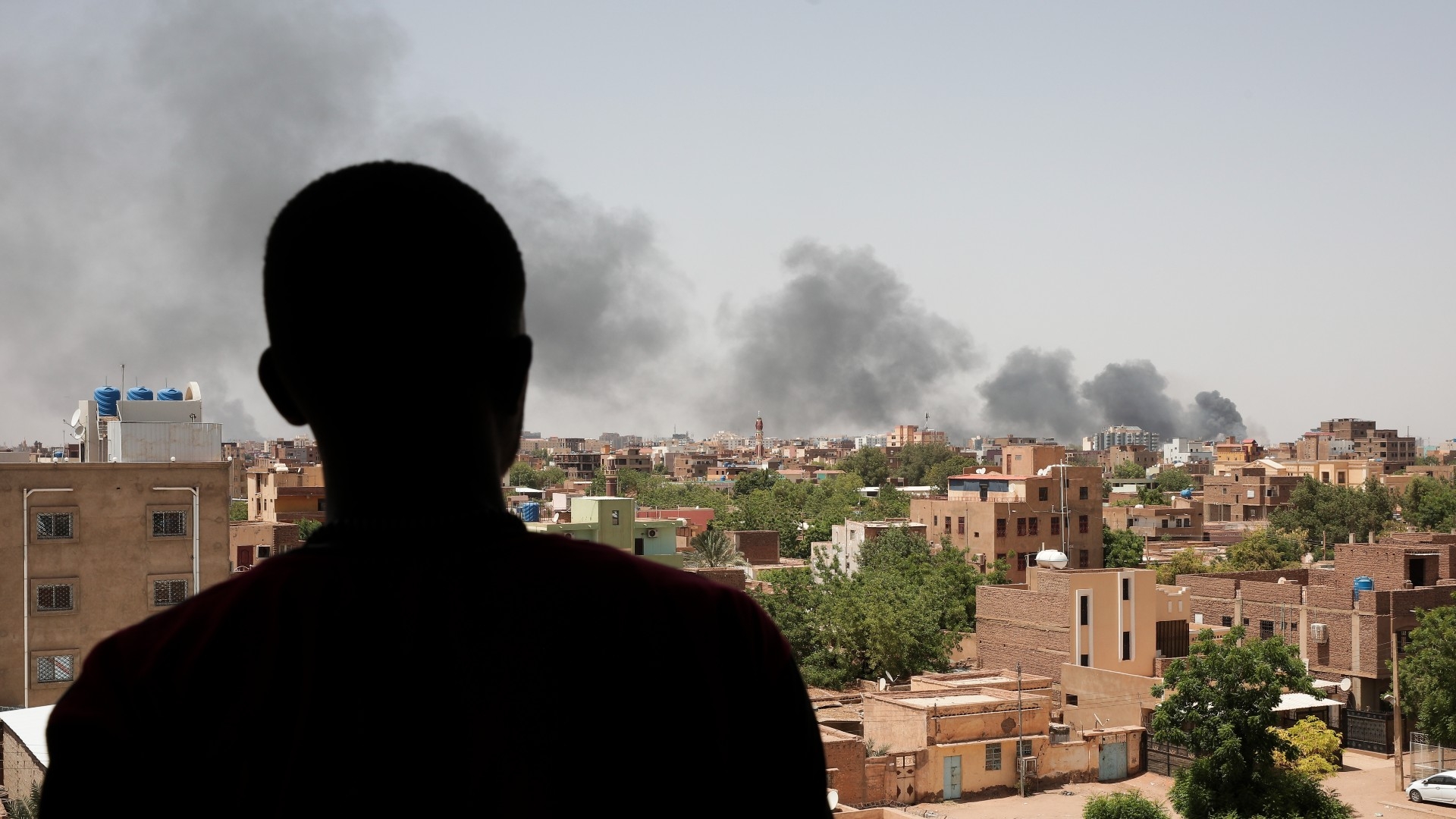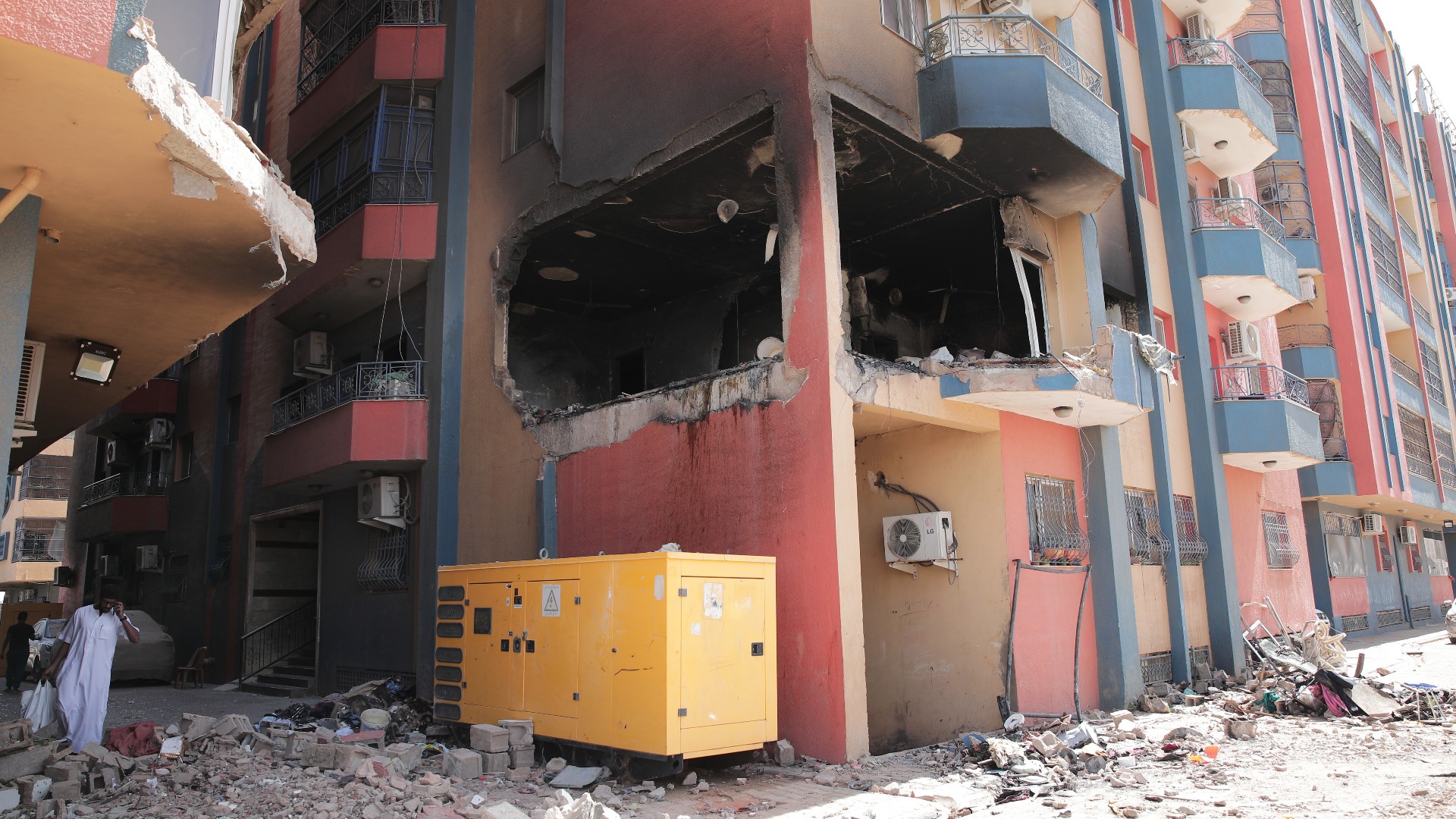Sudan turmoil: Looting and prison break as lawlessness reigns in conflict

As Sudanese factions battle over towns and cities, lawlessness reigns, with fighters looting businesses and homes and convicts sprung out of prison.
Eyewitnesses in Omdurman, a city across the White Nile from the capital Khartoum, described seeing unidentified gunmen storming a prison and freeing everyone inside.
A relative of Mohamed Adam, a pro-democracy protester nicknamed Tupac - after the rapper - and accused of killing a police brigadier, said he was among those freed but has since disappeared.
The Sudanese army claimed the Rapid Support Forces (RSF), the paramilitary it is currently battling, attacked the prison to sow chaos, though the RSF denies it was behind the prison break.
Now a week into deadly clashes between the army, led by General Abdel Fattah al-Burhan, and RSF, headed by General Mohamed Hamdan Dagalo, the security situation in Sudan has completely fallen apart.
Stay informed with MEE's newsletters
Sign up to get the latest alerts, insights and analysis, starting with Turkey Unpacked
More than 400 people have been killed in the violence, which broke out on 15 April as Burhan and Dagalo, commonly known as Hemeti, failed to agree on a transitional political deal following the 2021 military coup they led.
Thousands of people are fleeing Khartoum to safer governorates, particularly Jazeera state 200km south of the capital.
Both factions have commandeered police stations and other official buildings in a bid to control the streets and strategic locations.
Hospitals have been damaged, forced out of service and used as military bases. Doctors say 60 of Khartoum's 74 hospitals are currently out of action, with medicine and other supplies dwindling fast in those remaining.
Robbed at gunpoint
Looting has become part of daily life.
In Bahri, a city just north of Khartoum, trader Madi al-Nur said that armed men wearing RSF uniforms carried off all they could steal from the market by the central station.
"On Monday, after two days of the clashes, soldiers in RSF uniforms attacked Bahri market, looting and burning down the shops of all traders," the 57-year-old said.
"I came to the Bahri market on Monday to collect my materials, property, groceries and other expensive things to store them in a safer place, but I found the market totally looted and part of it has been burned. It's the RSF - I saw their vehicles surrounding the market."
Khartoum resident Ahmed Salih told Middle East Eye that he had a lucky escape when RSF fighters tried to rob his pickup truck.
"I heard the supermarket was open for a few hours on Saturday, so as I was bringing food back and reached Juba street I was stopped at an RSF checkpoint. They told me to get out of the car, so I immediately fled and they tried to shoot me, but luckily I managed to escape," he said.
Magdi Osman, a shop owner in the al-Amarat area, was also stopped by gunmen, but was unable to escape. A friend told MEE he was killed in front of his shop on Wednesday.
"He was planning to leave Khartoum. But after he collected his money and closed the shop, some gunmen stopped him and asked him to give them everything he has. He tried to run but they shot him dead immediately," the friend said.
Security vacuum
Since violence broke out, police have disappeared.
The army and particularly the RSF have turned abandoned police stations into military bases, as they can accommodate a lot of soldiers and many include surrounding walls. The RSF has even taken over the interior ministry in downtown Khartoum.
A source in the police told MEE that the RSF have taken over the majority of police stations in the capital.
'Because the police have fled the city, gangs and other criminals have spread, and it can't be contained'
- Mustafa Abdul Azim, retired officer and security expert
"The RSF have taken the migration office on Africa Street where I work, and are using it as a storage and logistical and supply office," he said.
"I also know a lot of colleagues in different police stations have been attacked and their offices occupied by the RSF."
Mustafa Abdul Azim, a retired police officer and security expert, said the conflict has created a security vacuum, as the police are a civilian force and cannot cope with fighting on this scale.
"Because the police have fled the city, gangs and other criminals have spread, and it can't be contained," he said.
"If this continues it will have serious consequences. I believe security is more necessary than even food, so I hope the two sides will allow the police to do their job."
Escape from Khartoum
At a bus station outside Khartoum, hundreds of people are not waiting to see if that will happen.
Omar Ahmed from the al-Sahafa neighbourhood was one of the frustrated and frightened travellers.
"We are very shocked and upset about what happened and is still happening. We haven't seen this kind of mass killing and full-scale war before," he told MEE.
"The two sides continue and it seems they will never stop. The random bullets and bombs are falling on civilians, so we chose to leave. I have my family with me here."
Friday was the first day of Eid al-Fitr, usually a time of celebration marking the end of the holy month of Ramadan. Yet for Sudanese like Naeema Hassan, it was far from a holiday.
She told MEE that she'd normally travel from the al-Azhary neighbourhood to celebrate Eid with family in Jazeera state, but this year it's different.
"This is a very sad Eid. We are travelling to Jazeera for good. I don't want to see Khartoum anytime soon," she said.
Middle East Eye delivers independent and unrivalled coverage and analysis of the Middle East, North Africa and beyond. To learn more about republishing this content and the associated fees, please fill out this form. More about MEE can be found here.






